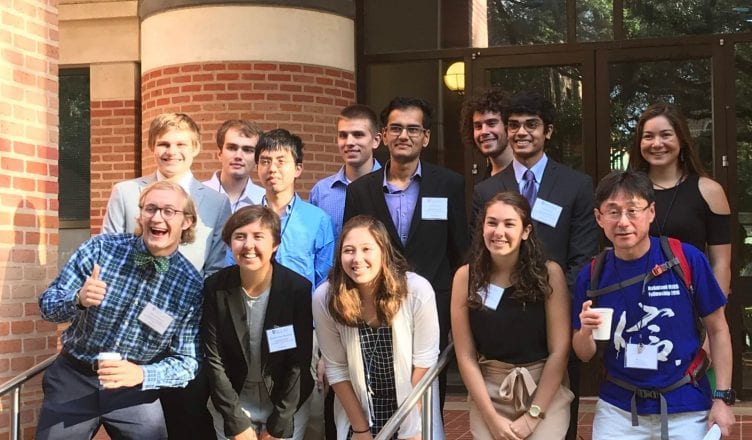The 2018 Nakatani RIES U.S. Fellows concluded their summer research experience in Japan with the presentation of a research poster on the projects they conducted in their Japanese host laboratories at the 4th Annual Smalley-Curl Institute (SCI) Summer Research Colloquium. Held at Rice University on Friday, August 10, 2018 the SCI Summer Research Colloquium provides undergraduates, graduate students, and postdoctoral researchers working at Rice with an opportunity to present their most recent work.
One of our 2018 U.S. Fellows, Kenneth Lin, was recognized with ‘Undergraduate Poster Presentation’ prizes out of the more than 75 graduate and postdoctoral students and more than 50 undergraduate students attendees. Kenneth conducted research in the Solid State Spectroscopy Group at the University of Kyoto under the advisement of Prof. Tanaka and Prof. Arikawa. His research focused on “Ultrafast Carrier Dynamics of Exfoliated Transition Metal Dichalcogenides with Optical-Pump Terahertz-Probe Microscopy (PDF)“. Congratulations Kenneth!
A huge congratulations to all of our 2018 U.S. Fellows for the successful completion of their summer research projects and the 13-week program in Japan! To learn more about our student’s experiences living and doing research in Japan, click the links below to review their website profiles and excerpts from their weekly reports.
Special thanks to Dr. Gayle Moran in the Rice Center for Engineering Leadership and Kyung-Hee Bae in the Center for Written, Oral, and Visual Communication for providing poster development support and practice presentations coaching sessions for our 2018 U.S. Fellows.
Smalley-Curl Institute honors top posters, presentations at summer colloquium
Prizes were awarded to graduate and undergraduate students judged to have the best presentations and posters at the Smalley-Curl Institute’s fourth annual Summer Research Colloquium Aug. 10 in Duncan Hall.
Click on the student names below to learn more about the 2018 Nakatani RIES U.S. Fellows including excerpts from their weekly reports!
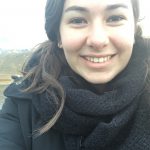 |
Kaitlin Gili
|
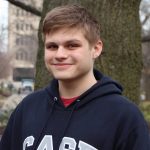 |
Joseph (Josh) LaurienzoHome Institution: Case Western Reserve University “The greatest meaning of the Nakatani RIES Fellowship to me was the opportunity to see how research is pursued abroad and to develop a deeper appreciation for Japanese culture. In so doing, I was able to put my own culture in perspective. It is hard to realize what is unique about yourself without seeing the differences of others.” ~ Josh Laurienzo |
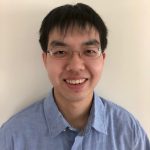 |
Kenneth LinHome Institution: University of Massachusetts, Amherst “Being amongst the Japanese graduate students working in a new field in a new country for me was eye-opening professionally and personally even with the international experience I have had in the past. I became more proactive and resourceful in the lab, and became more independent… the freedom I experienced in my lab here in Japan encouraged me to think ahead to the next steps and formulate my own analysis when things did not go as expected… Thus, I have become more able to function independently as a productive research student and progress towards becoming a researcher.” ~ Kenneth Lin |
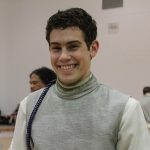 |
Gavin McGuireHome Institution: Georgia Institute of Technology “One of my main goals in this program was deciding whether graduate school was for me or not. Thankfully, I have enjoyed my summer so much that I now know that I would love to continue this path after my undergrad career. I developed so many great relationships and skills that I can’t wait to put to use… To this end, I will be continuing my Japanese minor as planned, but want to aim my elective courses towards photomaterials and optics, the field in which I worked this summer. As I approach the coming school years, I will be sure to play to the strengths I’ve developed in this program – independence, communication, flexibility, and most of all, the ability to ask for help. No lab, company, or class is a fully individual endeavor, and there’s never any shame in asking someone else for help!” ~ Gavin McGuire |
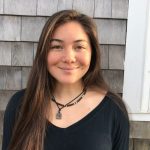 |
Ellen ParkHome Institution: Cornell University “There are many similarities and differences between doing research in the U.S. and Japan, and it was interesting to notice and reflect upon these differences. I believe the international collaboration is necessary for the advancement of science, and this summer only further emphasized this point for me. I learned a lot of important research and communication skills that will be applicable in any international lab setting.” ~ Ellen Park |
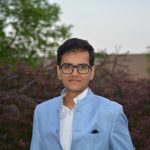 |
Janmesh PatelHome Institution: University of Wisconsin, Madison “My research experience this summer has taught me that no matter how careful you are and how dedicated you are to the project, there is no guarantee that things will work out in such a short amount of time. The cells that I was culturing continued to die and thus I could not apply the physical stimulus treatment to the maturing cells. This helped me to realize that no matter how hard you work that there is still a little bit that is left to chance; that small portion can only be influenced by luck, but it is still imperative to give it your all until the very end.” ~ Janmesh Patel |
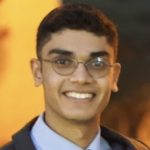 |
Sahil PatelHome Institution: Rice University “In many ways, it still feels like a dream now that I am back in the United States, but what I can say for certain are that the connections, experiences, and skills that I have gained will stay with me for the rest of my life. At the beginning of this program I really just saw the Nakatani Program as a research program that just so happened to be in Japan. I now see it as so much more: something that has fundamentally helped me grow as an individual.” ~ Sahil Patel |
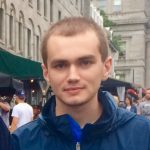 |
Benjamin PiazzaHome Institution: Pennsylvania State University “What I got out of the experience really depends on who I’m talking to. To my family, Nakatani RIES taught me how to truly live independently and adapt to new environments. To a professor, I’d say that the program taught me about a new field of research and did wonders to improve my Japanese. To an employer, I’d say that the experience taught me how to collaborate internationally across a variety of barriers. To a fellow student in my university, I’d tell them that it was fun, and an experience I’ll never forget. When I get back to the USA, I plan to study Japanese with even more fervor than before and continue my research at PSU so that the door to graduate school in Japan is left wide open should I choose that route.” ~ Benjamin Piazza |
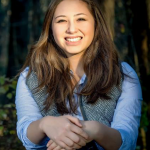 |
Hana WarnerHome Institution: College of William and Mary “I never expected the profound impact that this fellowship would have on me. With each “yes,” I discovered a burning interest in organic electronics, a confirmation that I absolutely want to go to graduate school and keep conducting physics research, and developed lifelong friendships with my lab mates and the other fellows. I hiked the highest mountain in Japan, made friends in a language I just began learning months ago, and explored until my shoes fell apart. This program enhanced my passion for science while broadening my global perspective and understanding of Japanese culture. I am thankful for the opportunities it has provided me, and plan to continue to learn about organic electronics and study Japanese—I look forward to catching up with the people that I have met at an international conference sometime in the future (or hopefully, on a return trip to Japan!)” ~ Hana Warner |
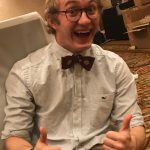 |
Samuel WarrenHome Institution: Yale University “I think the Nakatani Program was meaningful because it introduced me to a part of the world and specifically Japan I probably never would have gone to. I don’t think many people visiting Japan go to I don’t think many people visiting Japan to to Kyushu and fewer people actually live out in farmland… My favorite experiences in Japan were hiking in the mountains on a rainy day, and experiencing several acts of kindness from strangers along the way.” ~ Samuel Warren |
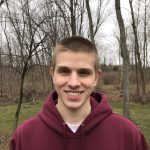 |
Lincoln WeberHome Institution: Southern Illinois University, Carbondale “The biggest takeaway from this summer experience, then, was my realization that different people from different places work, live, and behave differently, but they can still collaborate effectively to do great things, especially in the context of physics research. I feel very lucky that I have been able to see both the Japanese approach and the American approach to research, and I’m sure that will help with international collaborations during graduate school and during my career” ~ Lincoln Weber |
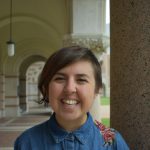 |
Grace WickersonHome Institution: Rice University “[I learned there] is the difference between doing research and being a researcher. When you just do research, you don’t care about understanding what you’re doing, just getting the data that your supervisor tells you is good. But when you are a researcher, the process – from idea, to knowledge building, to implementation and analysis – is what drives you.” ~ Grace Wickerson |
